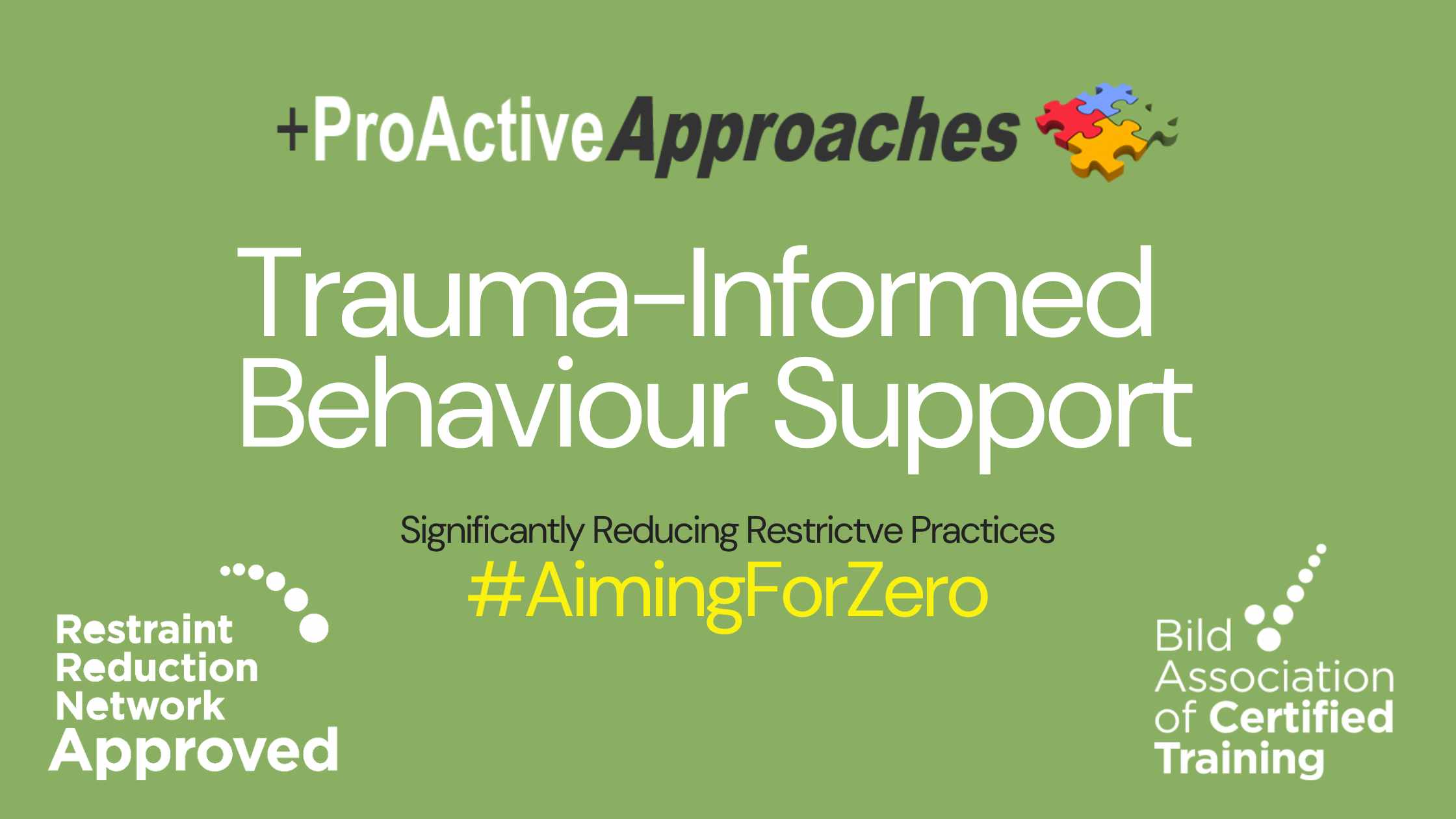In the fast-paced and often stressful environment of hospitals, maintaining positive behaviour can be a significant challenge for both patients and healthcare professionals. However, the implementation of Positive Behaviour Support (PBS) training in hospitals has shown promising results in improving patient outcomes and enhancing the overall hospital environment.
Positive Behaviour Support is an evidence-based approach that focuses on understanding and addressing the underlying causes of challenging behaviours. Rather than employing punitive measures, PBS aims to create a supportive and nurturing environment that promotes positive behaviour and reduces the occurrence of challenging behaviours.
In hospitals, the role of Positive Behaviour Support is paramount. It not only helps healthcare professionals in effectively managing patient behaviours but also ensures a safe and respectful environment for patients, staff, and visitors alike. By implementing PBS principles, hospitals can improve patient outcomes, enhance the overall quality of care, and reduce incidents of aggression, violence, and other challenging behaviours.
The importance of Positive Behaviour Support training in hospitals cannot be overstated. For patients, it can result in a more positive hospital experience, improved emotional well-being, and increased cooperation with medical treatments. Healthcare professionals, on the other hand, benefit from increased confidence in managing challenging behaviours, improved communication skills, and decreased stress levels.
Positive Behaviour Support training in hospitals comprises various components that equip healthcare professionals with the necessary skills and knowledge to effectively address challenging behaviours. These include assessing and understanding behaviours, developing and implementing individualized behaviour support plans, and monitoring and evaluating outcomes to ensure ongoing improvement.
Implementing Positive Behaviour Support training in hospitals requires a multi-faceted approach. It involves training hospital staff to effectively apply PBS principles in their daily interactions with patients, integrating PBS principles into hospital policies and procedures, and maintaining and enhancing PBS practices through ongoing education and support.
However, implementing Positive Behaviour Support training in hospitals does come with its own set of challenges. These may include resistance to change, lack of resources, and the need for ongoing support and supervision. Nevertheless, effective strategies and solutions exist to overcome these challenges, including the use of case studies and best practices to demonstrate successful implementation and the development of comprehensive training programs.
In conclusion, Positive Behaviour Support training is a crucial component in ensuring a safe and supportive hospital environment. By understanding and addressing challenging behaviours in a positive and proactive manner, hospitals can improve patient outcomes, enhance the well-being of healthcare professionals, and ultimately provide a higher quality of care. Through the implementation of PBS principles and ongoing training and support, hospitals can create an environment where positive behaviour thrives, benefitting both patients and healthcare professionals alike.
Understanding Positive Behaviour Support (PBS)
Positive Behaviour Support (PBS) is an approach that focuses on understanding and addressing the underlying causes of challenging behaviours, with the aim of promoting positive behaviour and improving overall well-being. In the context of hospitals, it plays a crucial role in creating a safe and supportive environment for patients, staff, and visitors.
Definition of Positive Behaviour Support
Positive Behaviour Support can be defined as a person-centred, evidence-based approach that seeks to understand and address challenging behaviours by identifying their function and implementing proactive strategies to promote positive behaviour. It emphasizes the importance of individualized support, collaboration, and a comprehensive understanding of the person’s needs and preferences.
The Principles and Purpose of PBS
The principles of Positive Behaviour Support revolve around promoting dignity, respect, and quality of life for individuals with challenging behaviours. It emphasizes the use of proactive strategies to prevent the occurrence of challenging behaviours rather than relying on reactive or punitive measures.
The purpose of PBS is not to control or eliminate behaviours but to understand and address the underlying causes in a person-centred manner. By identifying the function of behaviours and implementing appropriate supports, PBS aims to improve the overall well-being and quality of life for individuals while also creating a safe and inclusive environment for everyone involved.
The Role of PBS in Hospitals
In hospitals, Positive Behaviour Support plays a vital role in promoting the well-being of patients, staff, and visitors. It provides a framework for understanding and addressing challenging behaviours in a compassionate and effective manner, improving patient outcomes, and enhancing the overall hospital experience.
By implementing PBS principles, hospitals can create an environment that fosters positive behaviour and reduces the occurrence of challenging behaviours. This, in turn, leads to improved patient satisfaction, increased cooperation with medical treatments and procedures, and reduced incidents of aggression, violence, and other challenging behaviours.
Moreover, PBS in hospitals goes beyond individual patient care. It also addresses the well-being and support of healthcare professionals in managing challenging behaviours. By equipping healthcare professionals with the necessary knowledge and skills, PBS promotes a positive work environment, reduces stress levels, and enhances communication and collaboration among the healthcare team.
Overall, understanding Positive Behaviour Support is essential in recognizing its principles, purpose, and role in hospitals. By adopting this person-centred and proactive approach, hospitals can create a culture of care and support, benefiting both patients and healthcare professionals.
The Importance of Positive Behaviour Support Training in Hospitals
Positive Behaviour Support (PBS) training is of paramount importance in hospitals as it provides healthcare professionals with the necessary skills and knowledge to effectively manage challenging behaviours and create a safe and supportive environment for patients. The training benefits both patients and healthcare professionals, ultimately enhancing the overall quality of care provided.
Benefits for Patients
- Improved Patient Outcomes: Positive Behaviour Support training equips healthcare professionals with the tools to understand and address the underlying causes of challenging behaviours. By implementing proactive strategies, healthcare professionals can effectively manage and prevent challenging behaviours, leading to improved patient outcomes.
- Enhanced Emotional Well-being: Challenging behaviours can often arise from underlying emotional distress or unmet needs. Through PBS training, healthcare professionals learn techniques to identify and address these underlying issues, promoting emotional well-being and reducing distress among patients.
- Increased Cooperation with Medical Treatments: Challenging behaviours can interfere with a patient’s willingness to cooperate with medical treatments and procedures. By implementing PBS techniques, healthcare professionals can build rapport, trust, and understanding with patients, increasing their willingness to participate in their own care.
Benefits for Healthcare Professionals
- Increased Confidence in Managing Challenging Behaviours: PBS training provides healthcare professionals with a comprehensive understanding of challenging behaviours and the strategies to address them. This knowledge boosts their confidence in managing challenging situations, reducing stress levels, and improving job satisfaction.
- Improved Communication Skills: Effective communication is crucial in managing challenging behaviours. PBS training equips healthcare professionals with communication techniques that foster understanding and empathy, improving interactions with patients and reducing the likelihood of escalating behaviours.
- Decreased Stress Levels: The high-stress environment of hospitals can take a toll on healthcare professionals. By providing them with PBS training, hospitals can empower their staff with effective strategies to manage challenging behaviours, reducing stress levels and promoting overall well-being.
Improving the Hospital Environment
- Enhanced Safety: Challenging behaviours can pose a risk to the safety of patients, staff, and visitors. PBS training equips healthcare professionals with skills to prevent and de-escalate challenging situations, creating a safer environment for all.
- Cultivating a Supportive Culture: Implementing PBS principles fosters a culture of support and understanding within the hospital. By addressing challenging behaviours in a compassionate and proactive manner, healthcare professionals can create an environment that values dignity, respect, and positive behaviour.
- Reducing Incidents of Aggression and Violence: Challenging behaviours, such as aggression and violence, can have a significant impact on the hospital environment. By implementing PBS techniques, healthcare professionals can minimize the occurrence of such behaviours, creating a safer and more peaceful environment for all.
In summary, Positive Behaviour Support training is crucial in hospitals as it brings numerous benefits for both patients and healthcare professionals. By improving patient outcomes, enhancing emotional well-being, and increasing cooperation with medical treatments, PBS training ensures better patient care. Additionally, it boosts the confidence and communication skills of healthcare professionals, reduces their stress levels, and creates a safer and more supportive hospital environment.
Components of Positive Behaviour Support Training
Positive Behaviour Support (PBS) training in hospitals encompasses various components that equip healthcare professionals with the necessary skills and knowledge to effectively address challenging behaviours and promote positive behaviour. These components include assessing and understanding behaviours, developing and implementing positive behaviour support plans, and monitoring and evaluating outcomes.
Assessing and Understanding Behaviours
- Functional Behaviour Assessment (FBA): FBA is a systematic process used to understand the function or purpose of challenging behaviours. Through direct observation, interviews, and data collection, healthcare professionals can identify the antecedents (triggers) and consequences (reinforcements) of challenging behaviours.
- Person-Centred Approach: PBS training emphasizes the importance of understanding the individual’s unique needs, preferences, and experiences. By adopting a person-centred approach, healthcare professionals can gain insights into the underlying causes of challenging behaviours and develop tailored interventions.
- Collaboration and Communication: Effective collaboration and communication among healthcare professionals, patients, and their families are essential in assessing and understanding behaviours. PBS training equips healthcare professionals with skills to engage in open and respectful communication, ensuring that all perspectives are considered in the assessment process.
Developing and Implementing Positive Behaviour Support Plans
- Individualized Support: PBS training emphasizes the development of individualized behaviour support plans that address the specific needs and goals of each patient. These plans take into account the identified function of challenging behaviours and incorporate proactive strategies to promote positive behaviour.
- Positive Reinforcement Strategies: Positive reinforcement involves providing rewards or incentives to encourage desired behaviours. PBS training teaches healthcare professionals how to identify and implement appropriate positive reinforcement strategies to reinforce positive behaviour and reduce the occurrence of challenging behaviours.
- Proactive Strategies: Rather than relying on reactive measures, PBS training focuses on implementing proactive strategies to prevent challenging behaviours. These strategies may include environmental modifications, teaching alternative coping skills, and providing clear communication and expectations.
Monitoring and Evaluating Outcomes
- Data Collection and Analysis: PBS training emphasizes the importance of collecting and analysing data to monitor the effectiveness of behaviour support plans. This data may include the frequency, intensity, and duration of challenging behaviours, as well as the implementation and outcomes of interventions.
- Ongoing Evaluation and Adjustment: Positive Behaviour Support is an ongoing process that requires continuous evaluation and adjustment. PBS training equips healthcare professionals with the skills to assess the effectiveness of behaviour support plans and make necessary modifications based on the individual’s progress and changing needs.
- Collaboration with Multidisciplinary Team: Effective monitoring and evaluation of behaviour support plans require collaboration with a multidisciplinary team. PBS training promotes teamwork and collaboration among healthcare professionals, ensuring that interventions are coordinated and aligned with the overall care plan.
In summary, the components of Positive Behaviour Support training encompass assessing and understanding behaviours, developing and implementing individualized behaviour support plans, and monitoring and evaluating outcomes. By equipping healthcare professionals with these essential skills, PBS training enables them to effectively address challenging behaviours and promote positive behaviour in the hospital setting.
Implementing Positive Behaviour Support Training in Hospitals
Implementing Positive Behaviour Support (PBS) training in hospitals involves a comprehensive approach that includes training hospital staff, integrating PBS principles into hospital policies, and maintaining and enhancing PBS practices over time. By following these steps, hospitals can ensure the successful implementation of PBS and create a positive and supportive environment for patients and staff.
Training Hospital Staff
- Education and Awareness: The first step in implementing PBS training is to provide education and raise awareness among hospital staff about the principles and benefits of PBS. This includes training sessions, workshops, and informational materials to familiarize staff with the concepts and strategies of PBS.
- Skill Development: PBS training focuses on equipping healthcare professionals with the necessary skills to effectively implement PBS principles in their daily interactions with patients. This includes training on behaviour assessment, positive reinforcement strategies, de-escalation techniques, and effective communication.
- Ongoing Support and Supervision: Implementing PBS training requires ongoing support and supervision to ensure its successful integration into daily practice. This may involve regular meetings, coaching sessions, and feedback mechanisms to address challenges, provide guidance, and reinforce positive practices.
Integrating PBS Principles into Hospital Policies
- Policy Development: Hospitals need to develop policies that reflect the principles of PBS and promote a positive and supportive environment. This includes policies related to behaviour management, conflict resolution, patient rights, and staff training requirements.
- Staff Accountability: Integrating PBS into hospital policies involves setting clear expectations and holding staff accountable for implementing PBS principles. This may include performance evaluations and recognition for staff who demonstrate exemplary use of PBS strategies.
- Collaboration with Stakeholders: Successful implementation of PBS requires collaboration with various stakeholders, including administrators, healthcare professionals, patients, and families. Involving these stakeholders in policy development and decision-making processes ensures a comprehensive and inclusive approach.
Maintaining and Enhancing PBS Practices
- Continuous Education and Training: PBS practices should be continuously reinforced through ongoing education and training programs. This ensures that healthcare professionals stay updated on the latest research, techniques, and best practices in PBS.
- Data Monitoring and Evaluation: Regular data monitoring and evaluation are essential to assess the effectiveness of PBS practices and identify areas for improvement. This may involve tracking the frequency and intensity of challenging behaviours, evaluating the outcomes of behaviour support plans, and making data-informed adjustments as needed.
- Quality Improvement Initiatives: Hospitals should establish quality improvement initiatives to continuously enhance PBS practices. This may involve regular audits, feedback mechanisms, and collaborative problem-solving to address any gaps or challenges in the implementation of PBS.
By implementing PBS training, integrating PBS principles into hospital policies, and maintaining and enhancing PBS practices over time, hospitals can create a culture that supports positive behaviour and improves patient outcomes. This comprehensive approach ensures that PBS becomes an integral part of the hospital’s philosophy and practice, benefiting both patients and healthcare professionals.
Challenges and Solutions in Positive Behaviour Support Training
Implementing Positive Behaviour Support (PBS) training in hospitals comes with its own set of challenges. However, by recognizing these challenges and implementing effective strategies, hospitals can overcome obstacles and ensure the successful implementation of PBS principles. This section will discuss common challenges in PBS training and provide solutions to address them.
Common Challenges in Implementation
- Resistance to Change: One of the primary challenges in implementing PBS training is resistance to change. Some healthcare professionals may be reluctant to adopt new strategies or may be sceptical about the effectiveness of PBS. Overcoming this resistance requires clear communication, education about the benefits of PBS, and providing evidence-based research to support its implementation.
- Lack of Resources: Limited resources, such as time, funding, and staff, can pose a challenge in implementing PBS training. Hospitals should prioritize the allocation of resources and seek external funding opportunities to support the training and ongoing implementation of PBS.
- Staff Turnover and Training Needs: High staff turnover rates in hospitals can pose challenges in ensuring consistent implementation of PBS practices. Hospitals should develop strategies to address training needs, such as providing ongoing education and training programs, incorporating PBS principles into orientation programs for new staff, and establishing mentorship programs to support continuous learning.
Effective Strategies to Overcome Challenges
- Leadership Support: Strong leadership support is crucial in overcoming resistance to change and ensuring the successful implementation of PBS training. Hospital administrators should actively promote and endorse the importance of PBS, provide resources, and encourage staff participation in training programs.
- Collaboration and Communication: Open and transparent communication among healthcare professionals, administrators, and other stakeholders is essential in addressing challenges and finding solutions. Regular meetings, feedback mechanisms, and collaboration platforms can facilitate effective communication and foster a sense of ownership and buy-in among staff.
- Continuous Evaluation and Improvement: Regular evaluation and continuous improvement are key to overcoming challenges in PBS training. Hospitals should establish mechanisms to collect feedback from staff and patients, monitor outcomes, and make data-driven adjustments to improve the effectiveness of PBS practices.
Case Studies and Best Practices
Sharing case studies and best practices can provide valuable insights and inspire healthcare professionals during the implementation of PBS training. Hospitals can highlight successful implementations, showcase positive outcomes, and share lessons learned from challenging situations. This can serve as a source of motivation and practical guidance for staff who may face similar challenges.
By recognizing and addressing challenges through effective strategies, hospitals can successfully implement PBS training and create a positive and supportive environment for patients and staff. Overcoming resistance to change, allocating resources, addressing staff turnover, and promoting collaboration and communication are key to ensuring the long-term success of PBS practices. By sharing success stories and continuously evaluating and improving PBS implementation, hospitals can establish a culture that prioritizes positive behaviour support and enhances patient care.





